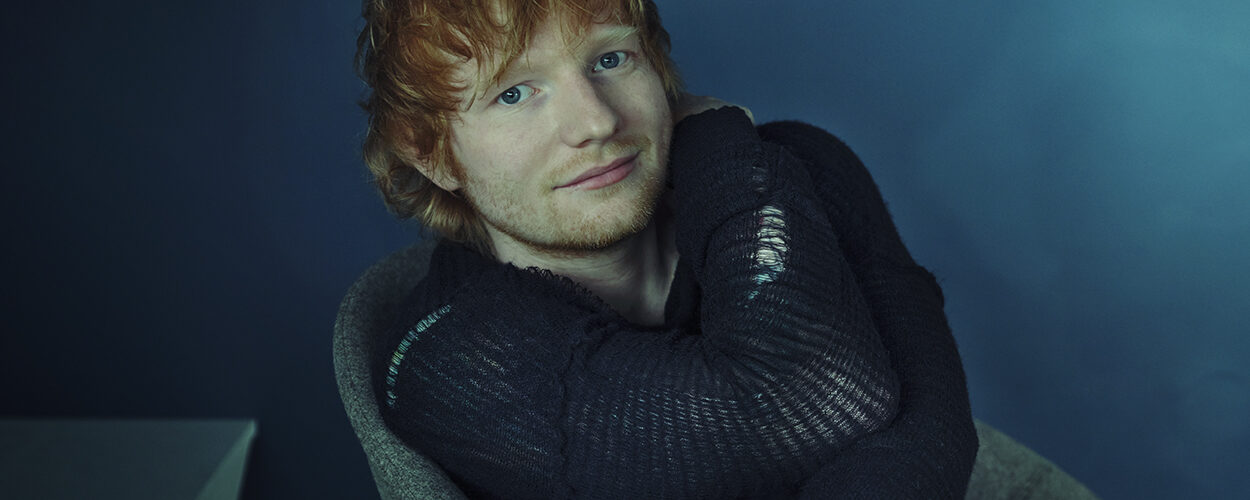This website uses cookies so that we can provide you with the best user experience possible. Cookie information is stored in your browser and performs functions such as recognising you when you return to our website and helping our team to understand which sections of the website you find most interesting and useful.
Artist News Business News Labels & Publishers Legal Top Stories
Ed Sheeran defeats second song-theft claim over Thinking Out Loud
By Chris Cooke | Published on Wednesday 17 May 2023

Ed Sheeran has successfully defeated a lawsuit that accused him of ripping off Marvin Gaye’s ‘Let’s Get It On’ when he wrote his 2014 song ‘Thinking Out Loud’. And if you think we’re reporting on this two weeks too late you’re forgetting that there were multiple lawsuits making that claim.
The first lawsuit to allege that ‘Thinking Out Loud’ infringed the copyright in ‘Let’s Get It On’ was the one filed by the estate of Ed Townsend, who co-wrote the Gaye classic. That litigation went to trial and, earlier this month, a jury sided with Sheeran.
He and his team argued throughout that the two songs sound similar because they use the same musical building blocks, as do many other pop songs. But the individual segments that appear in both ‘Let’s Get It On’ and ‘Thinking Out Loud’ are not protected by copyright in isolation. And the jury concurred.
Two years after the Townsend estate filed its lawsuit in 2016, a company called Structured Asset Sales also filed a lawsuit, because it has a stake in the ‘Let’s Get It On’ copyright. And it made pretty much the same claims as the Townsend estate.
Although, SAS actually sued twice. That was because of a technicality in US copyright law whereby, in song theft cases like this, a court can only consider how similar the newer song is to the version of the older song that was filed with the US Copyright Office.
Until the 1970s, the Copyright Office would only accept sheet music when a song copyright was being registered. This means only the sheet music version of the song can be considered, which can be a limitation if the similarities between the two songs are more obvious in the recordings.
Worried that restriction would negatively impact on its case – and because songs can now be registered with the Copyright Office via a recording – SAS refiled ‘Let’s Get It On’ with the Copyright Office and then sued again, hoping it could use the recorded version of the Gaye song if and when the second lawsuit got to court.
Meanwhile, the Sheeran side urged the judge overseeing the original SAS lawsuit – Louis Stanton – to dismiss the case by summary judgement using the same arguments as in the legal battle with the Townsend estate, ie that the two songs simply share common musical building blocks that are not protected by copyright in isolation.
However, last September Stanton declined to dismiss the SAS litigation, stating: “The law does not support Sheeran’s contention that the combination of ‘Let’s Get It On’s chord progression and harmonic rhythm is insufficiently original to warrant it copyrightable”.
“There is no bright-line rule that the combination of two unprotectable elements is insufficiently numerous to constitute an original work”, he added. “Moreover, where, as here, the parties’ experts disagree as to whether a particular musical element is original, summary judgment is inappropriate”.
But Sheeran’s lawyers requested that Stanton reconsider their motion for dismissal. And he’s now done just that. And changed his mind.
His original decision to deny the motion for dismissal, he writes in a new ruling published yesterday, was in part influenced by the fact that a motion for dismissal had also been denied in the case then still being pursued by the Townsend estate.
Though, he now concedes, the motion for dismissal was denied in the estate’s case before the big ruling in the US Ninth Circuit Appeals Court in relation to the song theft allegations made against Led Zeppelin over ‘Stairway To Heaven’. And that ruling “is one of the clearest articulations of how copyright law applies to musical compositions”.
Stanton had already factored in one element of the ‘Stairway To Heaven’ ruling when considering the SAS v Sheeran case, in relation to that limitation that only the version of a song filed with the Copyright Office can be considered in song-theft legal battles.
However, in his new ruling, he states that the judgement also makes other relevant points about how American courts should assess song-theft claims.
And while Stanton’s court in New York does not sit under the Ninth Circuit Appeals Court, a similar position has been taken in copyright cases on his side of the country too, including in the recent song-theft case against Childish Gambino over his 2018 hit ‘This Is America’, which was dismissed.
With all that in mind, Stanton concludes: “To prevent manifest injustice, defendants’ motion for reconsideration is granted. There is no genuine issue of material fact as to whether defendants infringed the protected elements of ‘Let’s Get It On’. The answer is that they did not. Accordingly, their motion for summary judgment is granted. The complaint is dismissed with prejudice”.
So look at that, Sheeran has won twice in relation to the same song-theft allegation within a fortnight. Good times. Though, we should note, SAS has already indicated that it will appeal this judgement and will continue to pursue its second lawsuit.





